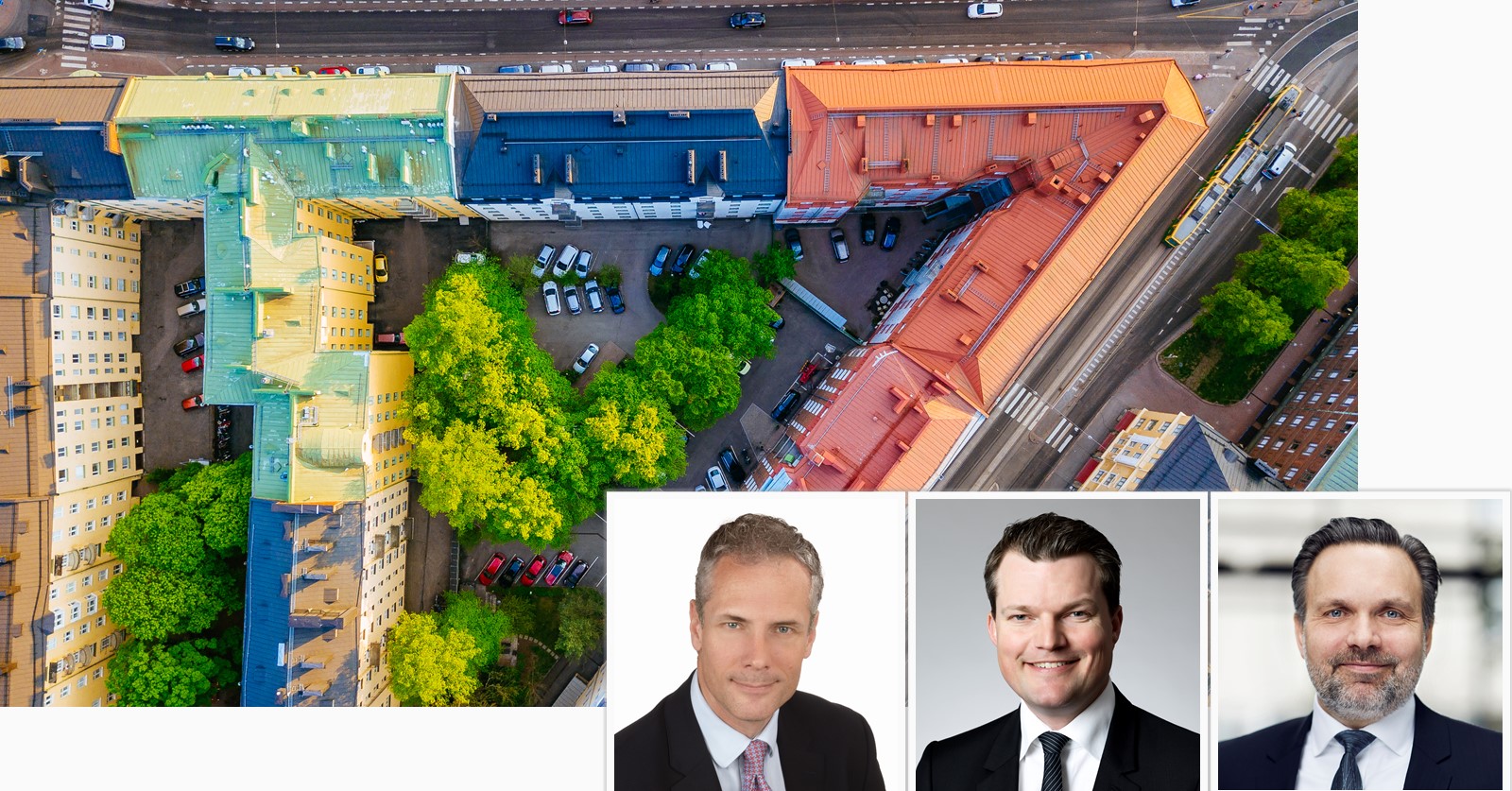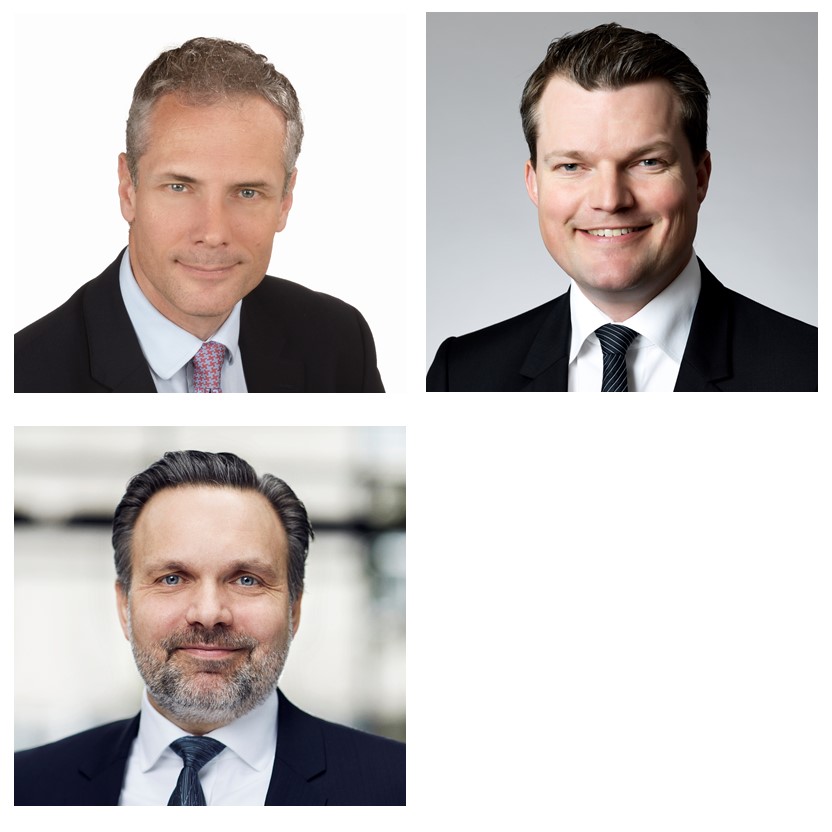The Corona virus came along and swept most of the anticipations and forecasts for 2020 overboard. The Nordic economies will contract and see a rise in the unemployment rates during this year with hopes of a rebound in 2021. Read the reflections on 2020 by CBRE's Nordic Managing Directors Colin Waddell (Finland & Norway), Patrik Kallenvret (Sweden) and Per Weinreich (Denmark).
Sweden
The Swedish investment market had a first quarter of 2020 in line with or much better than during Q1 2019, depending on whether you include SBB’s acquisition of Hemfosa. If the Hemfosa buyout is excluded, the investment volume decreased -34 % y-o-y January until May. The most resilient asset classes are clearly residential and logistics. The first is considered a safe haven, and the second benefits structurally from the increase in the e-commerce and has also a quite low supply of investable stock. Online grocery and food delivery orders have increased during the pandemic, and several large cold storage units are planned in the next couple of years in the Stockholm region, in the proximity of many end consumers. Retail was under a lot of pressure last year but has actually performed slightly better this year in terms of transaction volumes, largely thanks to the Farsta Centrum deal between Atrium Ljungberg and Stadsrum, where CBRE was the advisor.
Finland
The Finnish investment market saw a large spillover from Q4 2019 into Q1 2020 and had a strong sentiment across the board during the first quarter, particularly in industrial & logistics, care and office sectors. The investment volume reached €3.1bn and a 98 % growth y-o-y with a handful of landmark deals including the €480 million sale and leaseback of the OP Bank HQ Campus in Helsinki, where CBRE was the advisor. Despite a very good Q1 on record in Finland, the market sentiment slowed down during April & May and the true impact of slowdown will be visible during the second and third quarters of 2020. Multifamily, logistics and office sectors have been more resilient than other sectors. Multifamily will most likely be one of the least impacted sectors in commercial real estate due to the stable demand and attractive risk adjusted returns and logistics will get support from the growth of e-commerce and the peaking activity in the delivery market.
Denmark
The investment volume in Denmark reached DKK 15bn in Q1 2020, representing an increase of 20 % y-o-y. This brings the trailing twelve months investment volume in Denmark to DKK 58bn against a total of DKK 56bn in 2019. The strong performance in Q1 2020 was driven in part by a lag effect from the previous quarter, with several large deals that were initiated in the latter part of last year, completing at the start of this year. The largest deal during the quarter (+DKK 2bn) was the sale of Danske Bank's head office, where CBRE advised the seller. Whilst these volumes are not reflective of current market sentiment, and it won’t be until Q2 that the impact of COVID-19 on the Danish investment market will be seen, the strong performance in Q1 2020 is indicative of the amount of capital available to invest into Danish real estate and gives confidence investment volumes will regain strength once COVID-19 uncertainty fades. As we emerge from the COVID-19 crisis, logistics and residential sectors are considered to be the most resilient. Core markets are still active, while Value-Add investors are waiting for repricing and / or better access to debt.
Norway
Investment activity in Norway started the year on a strong note, lifted by corporate deals and big development projects. However, as COVID-19 forced authorities to shut down large parts of society in mid-March, activity shrunk dramatically. After being up nearly 30 % y-o-y in Q1 2020, activity is now down around 12 % y-o-y through May. The few deals that are done are typically very small, while larger deals were mostly put on hold in late-March. Many deal processes are expected to restart over the summer, and we should see a return to higher deal flow in Q4. Despite long rates and financing costs having come down significantly, most property yields have adjusted upwards somewhat, with retail and hotels hit the hardest. This type of market environment is generally expected to last until there are clearer signs of an economic recovery, which we believe will begin properly in 2021, though signs of improved activity will become visible already in Q3 2020.
The Nordic market
In the Nordic markets, many investors are currently in a ‘wait-and-see’ mode and occupiers are taking a more cautious approach at the moment. Early-stage and smaller size projects have seen the impact, whereas a handful of larger later-stage projects are still moving forward. Bank financing is still available especially for the well-known and existing customers and for prime assets or refinancing. Banks need to monitor their capital requirements and funding costs and, therefore, it is challenging to receive financing for new customers and the more opportunistic projects. Bond yields are estimated to increase more than 100 basis points for new issuances and the bond markets are mainly open for the higher-quality investment grade issuers. The ECB monetary and government fiscal stimulus will hopefully have a positive impact in the Nordic countries, and we are working together with our clients to get through the COVID-19 uncertainty, while we are returning to the workplace.
Patrik Kallenvret, Managing Director, CBRE Sweden
“So far, 2020 has really been an out of the ordinary year which has affected us in many different ways. We have adjusted into working from home and found different ways to take care of business in these unprecedented times. Looking at Sweden, we have won market share within some important business lines, especially within Capital Markets, where our joint Nordic approach has really made a difference. Please keep safe and best wishes for the second part of 2020.”
Colin Waddell, Managing Director, CBRE Finland & Norway
“Finnish and global equity markets are still defying the extraordinary economic data for 2020 - for instance, the Bank of Finland is predicting a massive -7% contraction in GDP. The positive sentiment in the equity markets is not reflected in real estate investment, where volumes have seen an 80% y-o-y slump in activity in Q2. Trading has either dramatically slowed, transactions have been cancelled or postponed indefinitely until there is more clarity. With the summer slowdown nearly upon us, it would appear any sign of improvement will not be until later in the year. Nonetheless, we look forward to all the inevitable re-structuring and opportunities that will be unlocked. In the meantime, stay well!”
Per Alexandar H.G. Weinreich, Managing Director, CBRE Denmark
“Following a fantastic first quarter of 2020, with progress in most business lines and where CBRE Denmark acted as advisor on the largest commercial property transaction in Denmark and the 4th largest in Europe, we suddenly woke up to a new reality. After a short period of working from home with online communication and meetings, Denmark is returning to a new normal. More than ever, our clients in all business lines are looking for counselling and market insights, which is exactly what our global and Nordic platform is built for. We are looking forward to a busy and challenging second half of 2020 with lots of opportunities for our clients and CBRE.”
CBRE´s Nordic Real Estate Blog will return in August. Until then, enjoy the summer and stay well!

